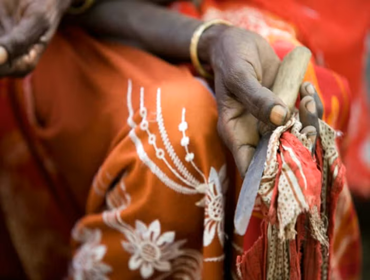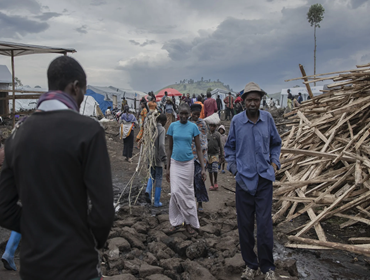Fifteen Years, Fifteen Facts: Challenges and solutions for gender equality
Stories & Blogs UN-WomenJul 01, 2025(News )UN Women marks its 15th anniversary by calling for bold action and push forward for gender equality.
USD 420 billion annual shortfall blocking gender equality in developing countries.
Stories & Blogs UN-WomenJun 30, 2025(Press Release )Chronic underfunding, weak tracking systems, and unfair financial rules are stalling progress on gender equality. UN Women calls for urgent, sustained investment to close the gap and deliver on equality commitments.
For ALL Women and Girls: Saron Mesele on bridging the digital gender gap.
Stories & Blogs UN-WomenJun 09, 2025(Interview )#ForAllWomenAndGirls is a rallying call for action on the 30th anniversary of the Beijing Declaration and Platform for Action.
Humanitarian funding cuts threaten women’s rights: What’s at stake and how to help.
Stories & Blogs UN-WomenMay 13, 2025(Article )UN Women’s latest research shows that half of women’s rights and women-led organizations in countries affected by humanitarian crisis may shut down within six months due to global funding cuts, with catastrophic impact on women and families in most need.
UNESCO and JamiiForums Discuss Digital Rights, Media Freedom and Online Safety
Stories & Blogs UNESCOFeb 13, 2025(Article )UNESCO held a meeting today with Maxence Melo, founder of JamiiForums, to discuss key takeaways from the UNESCO-supported Expert Consultation on Chapter J of the Beijing Declaration and Platform for Action, which took place on 21-22 January 2025 at UNESCO
UNESCO Strengthens Efforts to Tackle Gender-Based Violence in Media and Technology in Tanzania
Stories & Blogs UNESCOFeb 10, 2025(Article )UNESCO, the government, and civil society stakeholders have developed and integrated a new thematic pillar on Safer Media and Digital Spaces into the National Plan of Action (2025-2029).
Female genital mutilation is violence against women and girls.
Stories & Blogs UN-WomenFeb 06, 2025(Statement )UN Women statement on the International Day of Zero Tolerance for Female Genital Mutilation.
How AI reinforces gender bias—and what we can do about it.
Stories & Blogs UN-WomenFeb 05, 2025(Interview )Interview with Zinnya del Villar on AI gender bias and creating inclusive technology.
Press briefing by UN Women on the situation of women and girls in the Democratic Republic of Congo.
Stories & Blogs UN-WomenFeb 04, 2025(Press Briefing )Sofia Calltorp, Chief of Humanitarian Action at UN Women and Director of the Geneva Office spoke at the Palais des Nations on the ongoing crisis in DRC and its impact on women and girls.
Five essential facts to know about femicide
Stories & Blogs UN-WomenNov 25, 2024(Article )Every 10 minutes, partners and family members killed a woman intentionally in 2023.










